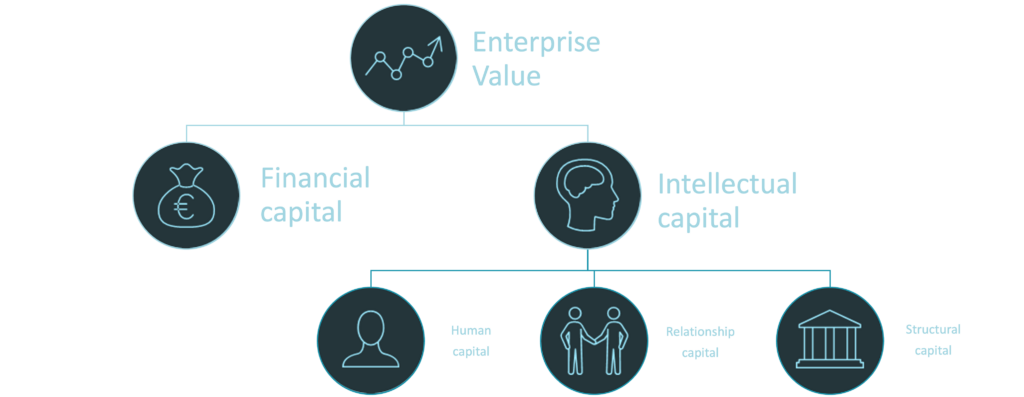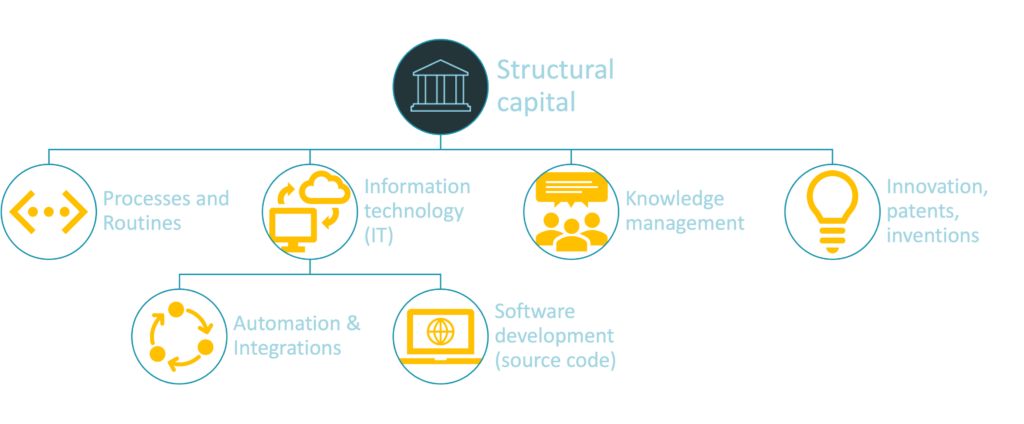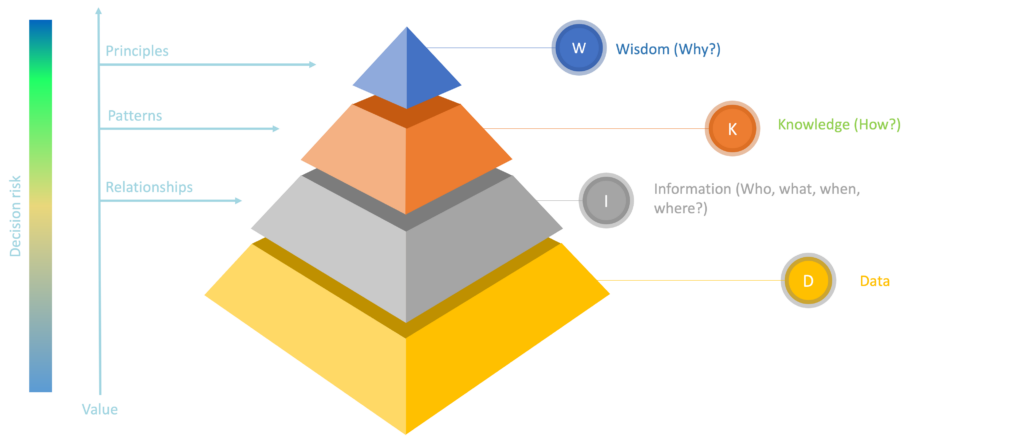How do we evaluate software businesses value? The digital era has left the older models increasingly outdated. Today, the world’s largest and most successful businesses are software and knowledge-based.
Non-financial factors that are significant for value creation are not effectively addressed for in traditional investment models because they only measure the financial benefits.
Many critical decisions are taken based on huge amounts of data, supported by digital decision intelligence tools. Estimates of market value do not account for the structural components that are the basis of modern knowledge- and software-based organisations.
Maybe it’s time for new thought leadership to improve how we estimate enterprise value…
Intellectual capital is intangible assets that gives a company a market advantage. It’s not measurable like financial capital.
Intellectual capital consists of human capital, relational capital and structural capital.

- Human capital consists of an individual’s education, abilities, skills, and physical and mental health.
- Relationship capital consists of the organisations relationships with its customers, suppliers, and other significant stakeholders.
- In order for human and relationship capital to do its job, an organisation needs structural capital in the form of a strong foundation of hardware, software, procedures, and data.

Business Technologists and Citizen Developers combine business acumen and low-code software to develop new types of business applications that optimise operations, accelerate normal business procedures and mine value from data assets.
Citizen Development democratise digital development and make everyone in the organisation empowered to increase the enterprise value. Business executives can boost the success of business technologists and drive Augmented intelligence as part of the organisational values and support citizen development paradigm governance efforts.
Looking at this pyramid of Data, Information, Knowledge, and Wisdom, we can see that Data is at the base of the pyramid.

Currently, there are vast quantities of data available, the majority of which do not have such a high value. Oftentimes, it is difficult to collect the proper data and data that can be placed in context to produce information. The value of data and information is enhanced by contextualising them.
Knowledge blends information with patterns of experience and serves as a foundation for decision-making and action.
At the top of the pyramid is Wisdom, which brings contextual awareness to provide a principle with a powerful, solid, and rational assessment and a profound understanding of why it is the right decision.
Typically, the higher up the pyramid a choice is taken, the lower the risks associated with it becomes.
Decision Intelligence is the application of machine learning and automation to augment human decision-making for better, faster insights-driven business decisions. Decision intelligence can provide insights that support the identification of business opportunities, strategy and plan development, project launches, and predicted outcomes.
Learn more on the free wiki knowledge-base – https://almbok.com